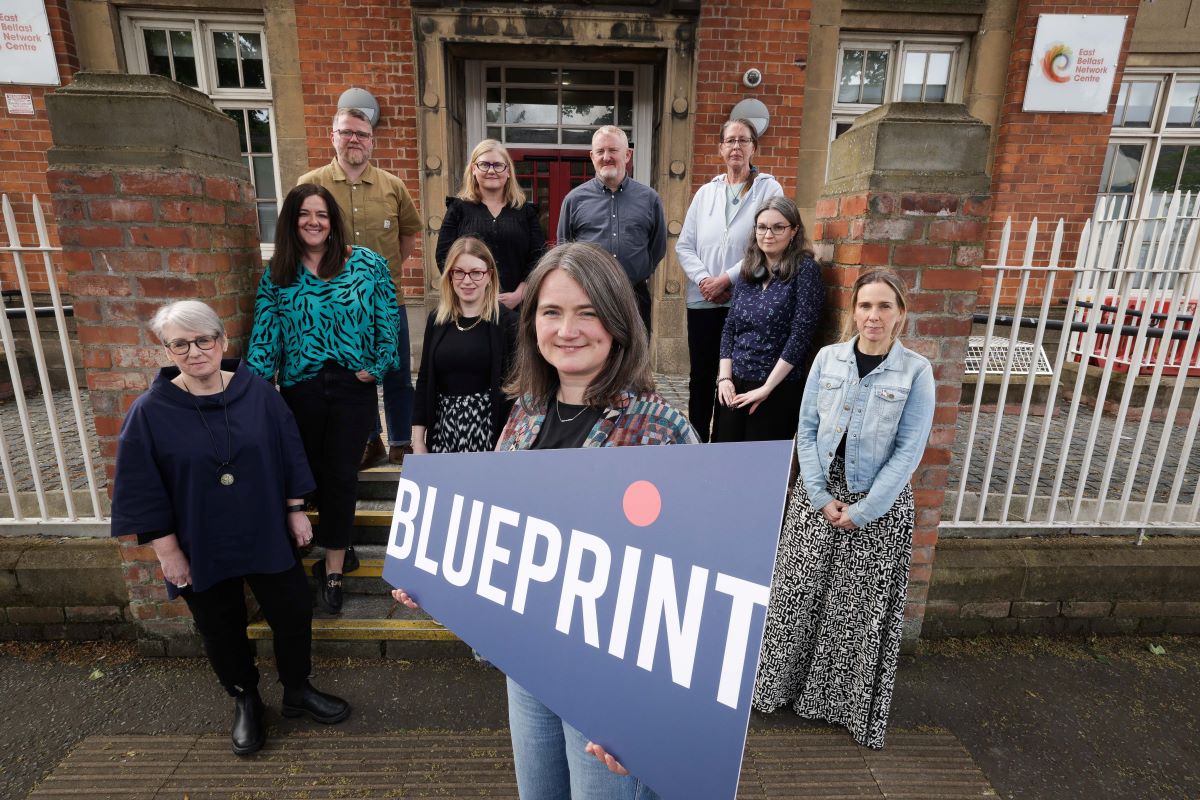
A fresh blueprint for funding arts organisations
Arts organisations are only too aware of the limitations of short-term funding. But, in Northern Ireland, a pioneering financial programme provides a fresh blueprint for future funding of the arts, as Sarah Jones explains.
There is no denying that the funding landscape for the arts in Northern Ireland is anything other than challenging. Systemic underfunding continues to have a lasting and detrimental effect on our arts organisations, in terms of ambition, skills development, long-term financial planning, the talent pool and overall health.
Two years ago, Arts & Business Northern Ireland (A&BNI) set about creating a new programme to give organisations the tools required to combat the problems this restraint can cause. As well as working directly with organisations, we wanted to examine how the existing funding systems may be challenged or used to greater impact.
The result was Blueprint, the first financial resilience programme of its kind aimed at making the arts sector more robust and sustainable by diversifying income streams. A five-year programme, launched in January 2022, Blueprint supports arts and cultural organisations to encourage income growth and long-term financial stability through a combination of capacity building training, one on one mentoring and investment grants.
Bespoke programme
Now completing its first cohort, 30 arts and cultural organisations went through the initial Blueprint phase of mentoring and 17 progressed to phase two*, giving each access to investment grants worth £45,000 to test income generation ideas and develop growth strategies.
The bespoke nature of the support and lack of restriction placed on the grants meant participants could take a step back and consider what change was needed to help them grow. This could mean focusing on a product, restructuring teams or investing in new premises.
We are constantly learning and refining our approach, however Blueprint is different from many other programmes for several reasons:
• Collaboration: The combined power of private and statuary funders coming together provided a fund large enough to make real impact.
• Support network: Feedback is showing that we have exponentially increased the impact of grants by providing a high level of support. Funding alone doesn’t make a lasting impact, but training, peer-to-peer learning and support alongside investment creates real organisational change.
• Flexibility: We allowed organisations to make decisions about the change that’s right for them and how they use their grant. This helps build stability and resilience across all areas including governance, leadership, financial planning and the development of new income streams.
• Allowing failure: Looking at the potential for success and being ambitious means that failure is inevitable and that is OK. We want to see progression towards resilience and stability but no one is punished for trying and testing to find it doesn’t work.
• Trust: We trust organisations to do what they believe is right for them. We look at outcomes, rather than over-analysing how they spend the grant.
No-one wants it fail
As we develop the programme and hope to open for a second cohort this autumn, we will continue questioning how we can create the greatest impact. To do that, we need more opportunity to come together as a sector.
Last autumn, we held the first NI Arts Funders Exchange, welcoming those who fund the arts in Northern Ireland to connect and engage in forward-thinking discussions about challenges the sector faces. Another is planned for this coming November.
A standout point for me is that no-one wants this to fail. Funders want to see results from their investments and organisations want to be enabled to do what they are best at. It is important that we create an environment in which both can happen.
Potential for permanent transformation
Delivering Blueprint is both a joy and a daily lesson. We are passionate and are beginning to see great results, but we are just one programme, working in a very intricate ecosystem.
It’s important for participating organisations too. Grainne Woods of physical theatre company Kids in Control was one of them: “Blueprint gave us the chance to assess what we needed to do to truly fulfil our potential. It gave us insight to realise we had to develop our operational and artistic team and, importantly, the confidence to progress with a complete company rebrand to better communicate our services.”
Blueprint has only been possible because we have chosen to do things differently. We continue to look for partners who want to explore how the model can be developed further and believe it has the potential to permanently transform the future of the arts in Northern Ireland and beyond.”
Sarah Jones is Blueprint Manager at Arts & Business NI.
![]() artsandbusinessni.org.uk/
artsandbusinessni.org.uk/
![]() @artsbusinessni
@artsbusinessni
Blueprint is supported by the Dormant Accounts Fund NI delivered by National Lottery Community Fund NI, Department for Communities NI, Paul Hamlyn Foundation, Esmée Fairbairn Foundation, Belfast City Council and Arts Council Northern Ireland.
*Organisations completing the second phase of Blueprint 2023/2024 include The Duncairn Arts Centre, Belfast Exposed, Andersonstown Traditional and Contemporary Music School, Belfast Photo Festival, Fighting Words NI, Golden Thread Gallery, Household, Kids in Control, In Your Space Circus, Maiden Voyage Dance, Replay Theatre Company and Seacourt Print Workshop, Terra Nova Productions, Theatre and Dance NI, University of Atypical, Vault Artist Studios and Young at Art.
Join the Discussion
You must be logged in to post a comment.